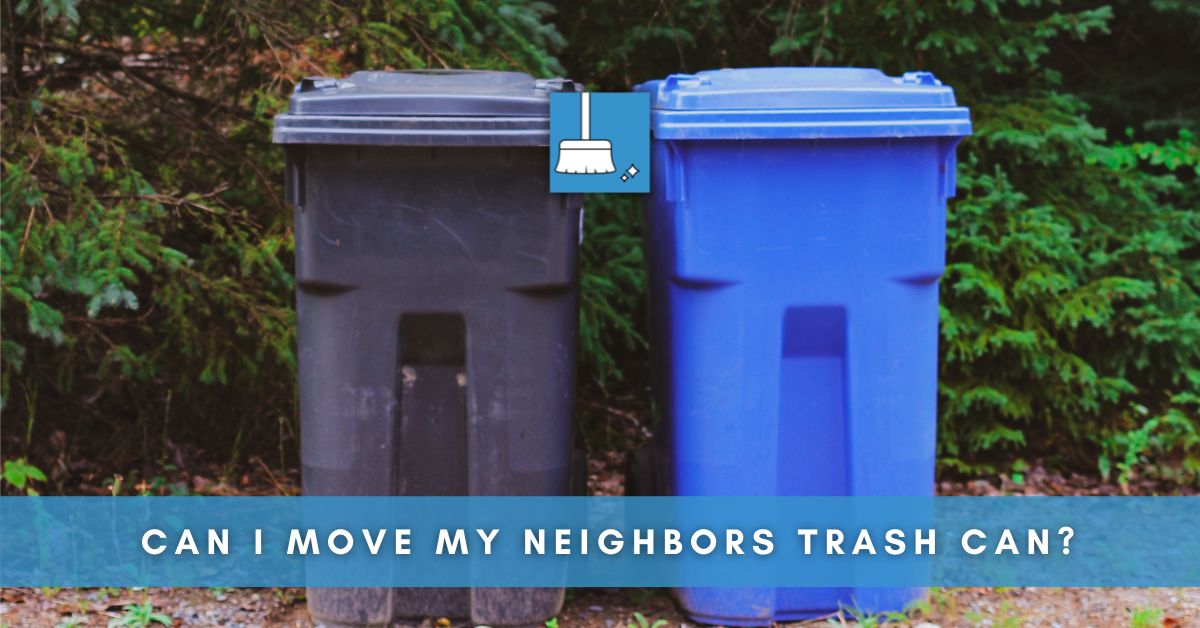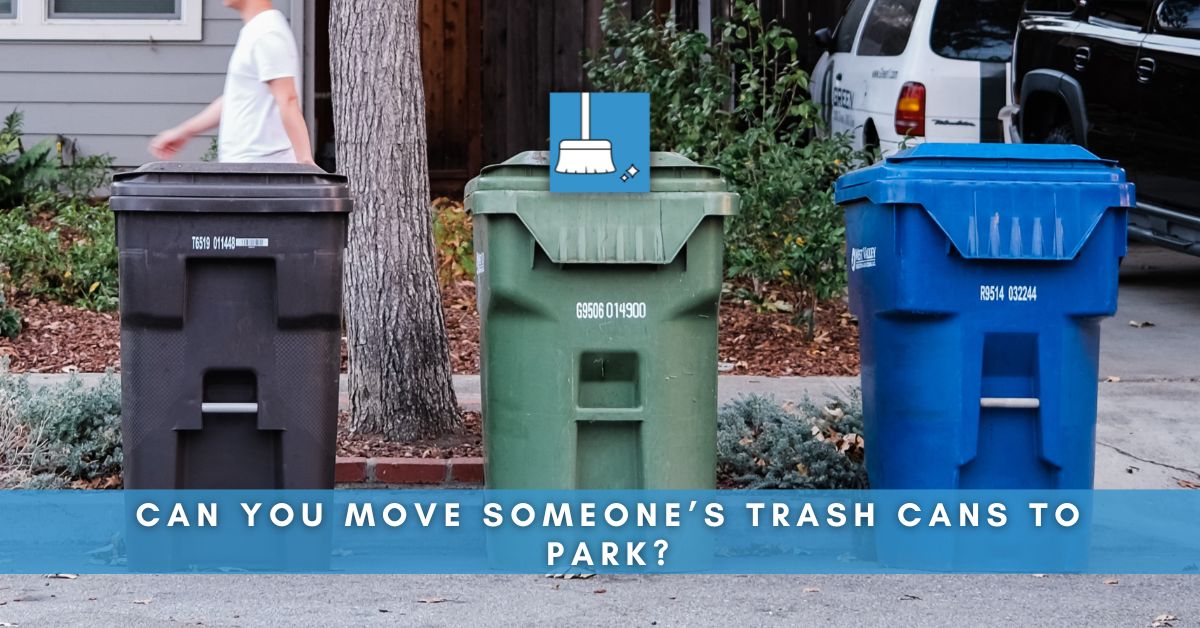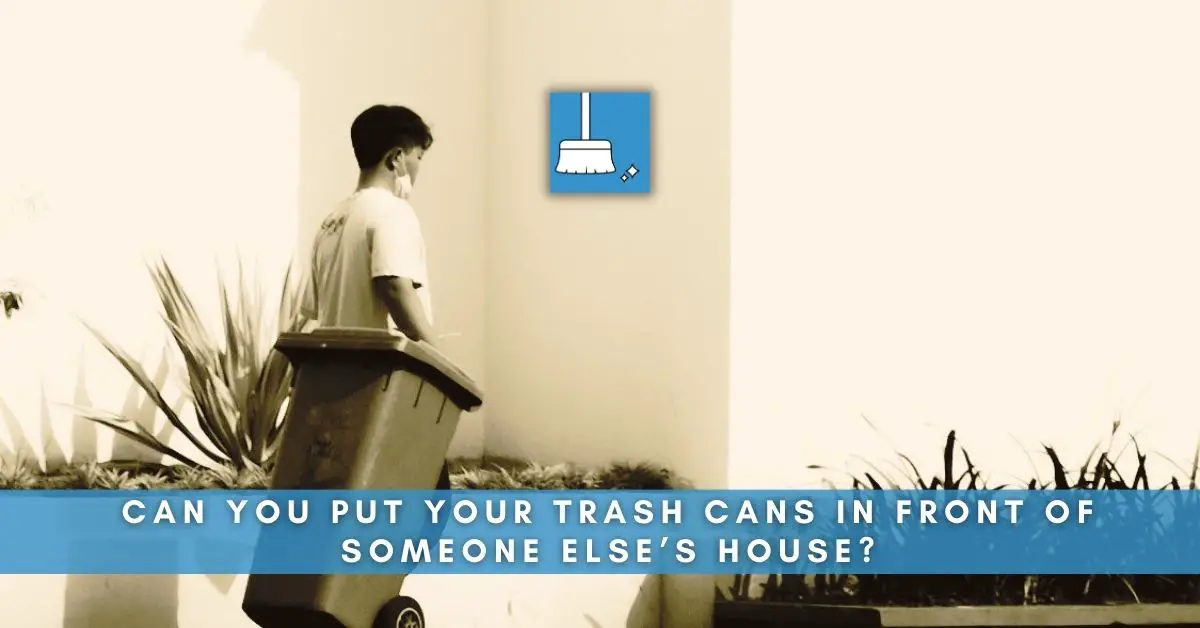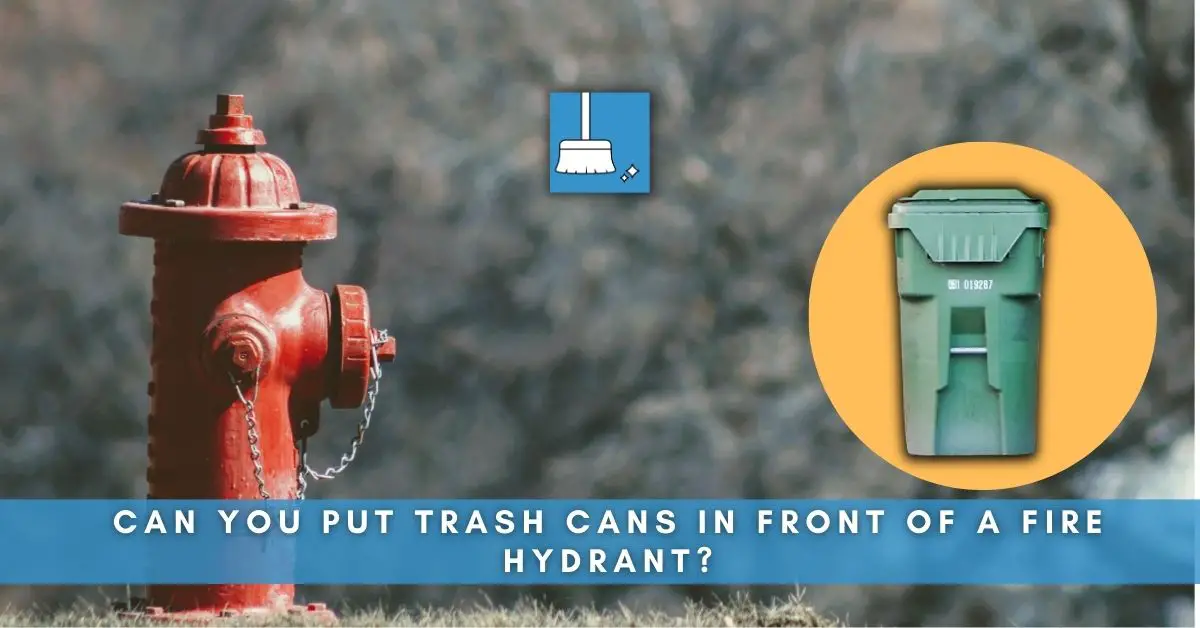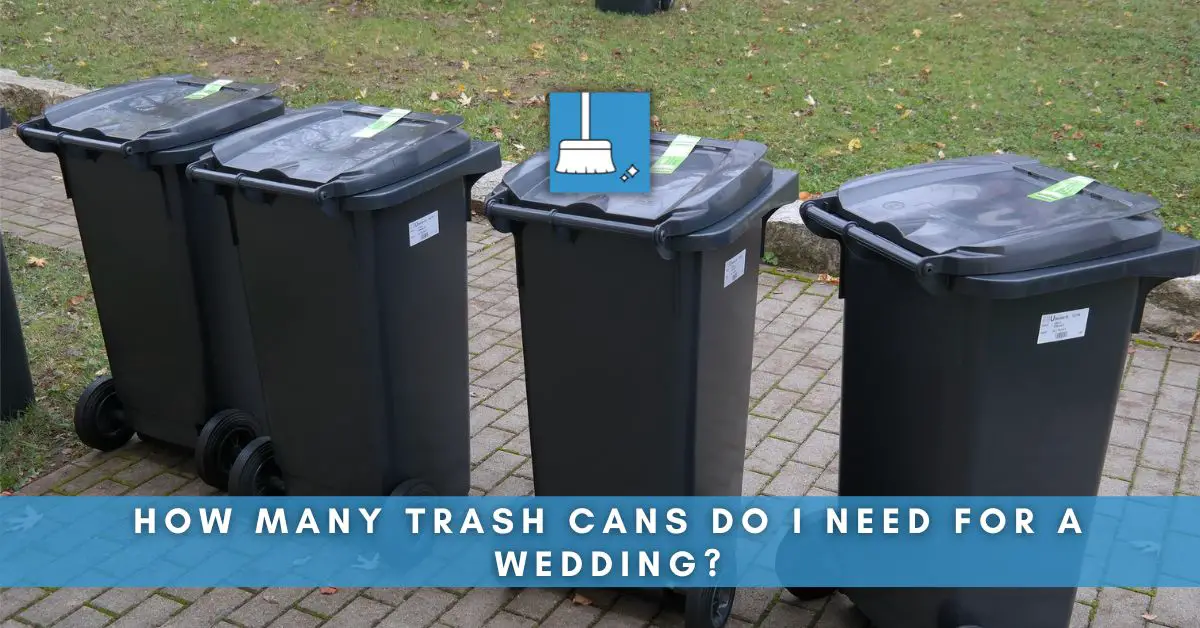As you sit down in your patio, you can’t help but notice your neighbor’s overflowing trash can, spoiling your perfect view and wafting an unpleasant smell your way. Or perhaps you you simply want to park your car in it’s place. In this article, we’ll delve into the topic of moving other people’s trash cans.
Can I Move My Neighbor’s Trash Can?
While trash cans are considered public property as they are owned by Waste Management or your local waste collection company, they are still assigned to a specific property.
If you move your neighbor’s trash can onto their property, you could be charged with trespassing. Furthermore, if you take their trash can or move it to an inconvenient location, you could be fined by the waste collection company or charged with creating a nuisance.
Parking spaces can often be a source of conflict between neighbors, especially when one attempts to “reserve” a spot by placing their trash bins in the street.
Local regulations and ordinances have specific guidance for trash cans.
For instance, in Los Angeles County, the law states that trash bins cannot be placed on the street before 5 p.m. the day before collection and must be removed by 8 p.m. on the day of collection. This means that leaving trash bins on the street to reserve a parking space is not allowed.
To avoid conflicts, initiate communication with your neighbor, discuss the issue, and explore available options through your homeowner’s association or local municipality. [1][2]
Trash Bins Ownership & Public Property Status in the US
In the United States, trash bins placed on the curb or in a publicly accessible area are considered public property.
This concept was solidified by a federal appeals court ruling in 1998, which stated that law enforcement officials do not need a warrant to search a trash can that a homeowner sets out for collection in such an area.
The ruling cited a previous U.S. Supreme Court decision that individuals have no reasonable expectation of privacy in trash left for collection in areas accessible to the public.
However, there are some restrictions, such as recycling, which is considered off-limits for anyone other than a city’s designated recycling service. While homeowners might believe their trash is private, the truth is that once it’s placed on the curb, it becomes open season for anyone from law enforcement to trash pickers. [3]
It is important to note that local ordinances may have specific regulations regarding trash bin placement and removal, so it’s always best to familiarize yourself with your city’s rules and guidelines. [4]
Is Your Neighbor Placing their Trash Cans Properly?
Proper placement of garbage cans on property is crucial for maintaining cleanliness and avoiding conflicts with neighbors. Check for the following:
1- Your neighbor should place their trash cans within their property lines or in designated areas specified by the waste management company. This reduces the risk of trespassing the neighbor’s property or violating local regulations.
2- Your neighbor should follow the guidelines provided by your waste collection company or city, which typically define the required distance of garbage cans from fences, curbs, cars, and other trash cans or bags. [5]
Consequences of Placing Garbage Cans on the Property Line
Placing garbage cans on the property line may lead to various conflicts and issues with neighbors.
First, the act violates guidelines set by waste collection companies and local authorities, which might result in fines.
Second, it can create confusion regarding the responsible party for keeping the area clean and maintaining the bins.
Third, it may lead to trespassing accusations if a neighbor moves the bin onto their property or vice versa.
Fourth, such placement can become an obstacle and inconvenience for those accessing adjacent properties.
Lastly, consistently placing garbage cans on the property line can trigger animosity between neighbors, potentially ruining relationships and fostering an unhealthy living environment.
It is advisable to follow the established guidelines to prevent these consequences.
Reporting Violation of Garbage Can Placement Guidelines to the Authorities
It is essential for everyone to adhere to the garbage can placement guidelines set by their local authorities to ensure proper waste management and maintain cleanliness in the neighborhood.
If you notice that your neighbor’s trash can placement is not in compliance with these guidelines, you have the right to report this violation to the responsible authorities.
For instance, in the City of San Diego, you can report such violations using the city’s online service portal or by contacting the Environmental Services Department at 858-694-7000.
Similarly, in Columbus, Ohio, residents can call the Division of Refuse Collection for assistance.
By reporting these issues, you can contribute to a cleaner and healthier community for all residents. [6][7]
How to Handle a Neighbor Who Repeatedly Moves Your Trash Can?
Handling a neighbor who repeatedly moves your trash can might be a delicate situation, but it is essential to address it calmly and respectfully.
1- Confirm if there is any HOA rule or local ordinance that you might be unintentionally violating by leaving your trash cans out after pickup.
2- If you are in compliance with all rules, try having a friendly conversation with your neighbor, expressing your concerns and attempting to seek a mutually agreeable solution.
It’s important to note that moving your trash can might technically be considered trespassing; however, avoid escalating the situation.
If all else fails, consider informing your HOA manager and documenting any incidents with photos or video evidence, but always prioritize maintaining a cordial relationship with your neighbor. [8]
Initiating a Conversation with the Neighbor about the Issue
Initiating a conversation with a neighbor about the issue of moving their trash can may seem challenging, but it is important to address the concern in a friendly and constructive manner.
Start by choosing an appropriate time when both parties are relaxed and not in a hurry, as this will aid in creating a pleasant atmosphere for the conversation.
Approach the neighbor in a non-confrontational manner, expressing your concerns and providing some context to the issue, such as the HOA rules or local ordinances.
Avoid being accusatory, and instead, suggest some potential solutions that may benefit both parties, such as setting a reminder to move the trash cans within the specified time frame.
By maintaining a cordial tone and focusing on positive outcomes, you can effectively communicate your concerns while fostering a respectful and supportive relationship with your neighbor. [9]
Taking Further Steps to Resolve the Issue with Authorities
If your neighbor continues to leave their trash cans in a restricted area or uses them to reserve parking spaces despite your polite requests, you can take the matter to local authorities.
In Contra Costa County, for example, residents can report such violations by contacting code enforcement officers at their local municipality. These offices often prioritize serious health and safety concerns, but they also deal with less critical issues, like neighborhood nuisance complaints.
Once a complaint is received, authorities will typically send out a Courtesy Letter to the property owner, urging them to comply with local ordinances.
By reporting the issue, you’re encouraging your neighbor to be more mindful of their actions and respect the community’s shared spaces. [10]

